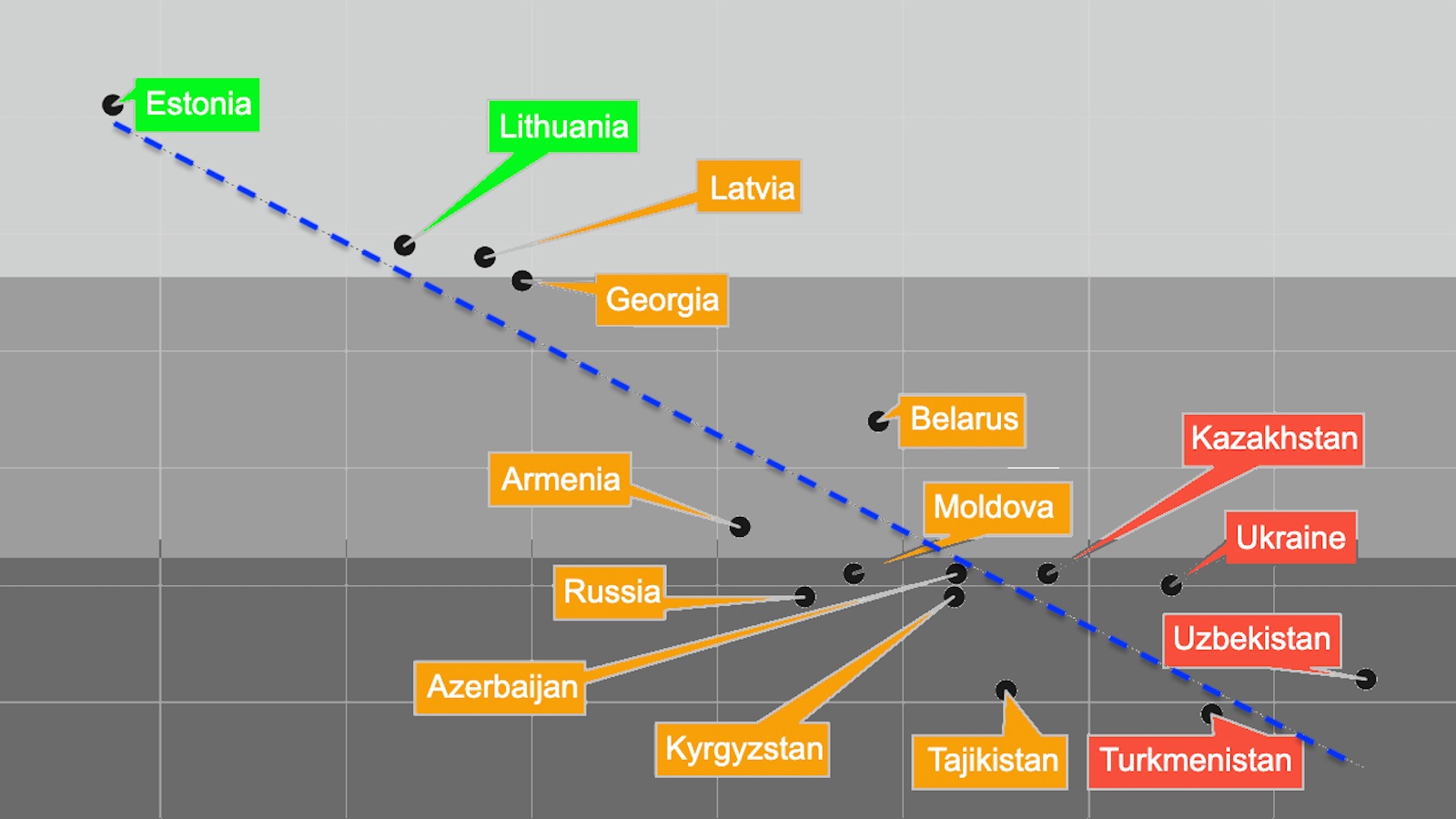From global to planetary: Is new governance needed in a post-Holocene world?

- Our political, economic, and social arrangements seem mismatched with the planetary-scale changes humanity faces today.
- Jonathan Blake and Nils Gilman, of the Berggruen Institute, question whether the nation-state model has become obsolete and if a new type of governance is necessary.
- Given that people generally reject the idea of a world government, Blake and Gilman propose that small scale, bottom-up decision-making may prove more efficient.
Human beings have imagined many ways to organize themselves. From hunter-gatherers to global-spanning empires, we have invented political and economic forms and later abandoned those in favor of something new. Now, a quarter into the 21st century, our global project of “civilization” faces novel pressures that may demand another reimagining of our social arrangements. The most urgent of these new challenges is, of course, the changing climate state driven by our industrial-political economy. From this point of view, we can ask: Does the nation-state still make sense?
This question stood at the heart of an event I attended last month in Venice. It was called the Planetary Summit and was sponsored by the Berggruen Institute. If you don’t know about the work Berggruen does, you should. In particular, you should know about their magazine, Noema, and its weekly newsletter, which has some of the most interesting writing on questions of AI, democracy, governance, and the human future. The “planetary” in the Planetary Summit is a new term circulating in discussions about humanity and the challenges confronting it. Rather than the old term “global” — which saw the modern, wildly interconnected world solely in terms of human projects — the planetary understands that those projects are always embedded in something bigger and that has its own concerns.
This bigger something is the coupled Earth system. It’s the dense web of interactions making up the biosphere and the geospheres (atmosphere; hydrosphere; cryosphere; lithosphere). Together these act as a single evolutionary whole. Over the last hundred years or so, humanity built the global via networks of trade and commerce that were powered by a voracious consumption of fossil fuels. In the process, we began pushing the planet — in other words, the coupled Earth system — out of the state it inhabited for the last 10,000 years. That state, called the Holocene, is ending now. Something new, something we can’t fully see yet is emerging to take its place. Facing the reality of that change and the massive disruptions to our project of civilization it entails is why we need to go beyond the global to the planetary. We’ve reached the point where our political, economic, and social arrangements can no longer ignore their place on a finite planet. Because Earth channels such enormous cosmic energies (I’m talking incoming solar power), even a small shift in its state could shake away our project of civilization like fleas off a dog.
This is where we come back to the question of the nation-state.
In their book Children of a Modest Star, Jonathan Blake and Nils Gilman, two leaders of the Berggruen Institute, analyze the mismatch between how we govern ourselves and the problems these forms of governance now face. Today, the nation-state is our primary form of governance. Born just a few centuries ago, this arrangement claims sovereignty over portions of land and the peoples living within those borders. It may have its own sub-units like states or provinces, which themselves have their own sub-units like cities, but there is nothing above the nation-state that exerts governing power. Even the United Nations is no more than an agreement among sovereign nation-states about how they should interact.
The problem climate change poses is that the CO2 emitted by each individual nation-state leads to effects felt by all the others, and climate change is just one feature of a broad collection of planetary-scale changes defining the Anthropocene, the post-Holocene epoch we’re beginning to enter. Much of the discussion at the Planetary Summit and in Children of a Modest Star centered around the inability of the nation-state to cope with these planetary-scale challenges. How then do we organize ourselves to cope with these challenges?
One point made at the summit and in the book is that going up a level to a world government is unlikely to be the answer. We have seen populations worldwide push against requirements being forced from the top down. This has been particularly true in the world’s democracies, which now face a crisis of faith in their institutions. Instead, an innovative approach explored at the summit was new bottom-up approaches to governance and climate issues. Thus, while there may need to be governing organizations that work at a level above the nation-state, the power to decide how action is implemented should always be carried out at the smallest scale possible. This would mean that even if limits on emissions are needed, how, where, and when those emission curbs occur should be decided on the levels of cities or counties.
That emphasis on the multi-scale organization of politics and economy in the face of planetary-scale challenges is radical and innovative. It would be a new kind of human arrangement, one necessitated by the planet changing under our feet. There is, however, no clear path from here to there, a fact acknowledged in the book and at the summit. If such a change is possible, then it would have to be an emergent phenomenon, something determined in the process of building it. What matters though is that while this new view does not see the nation-state disappearing any time soon, it does recognize that in the long term, nation-states may have run their course as the single guiding principle for our social organization.
All things pass and all things change. Perhaps we are at the beginning of the nation-state’s twilight.





